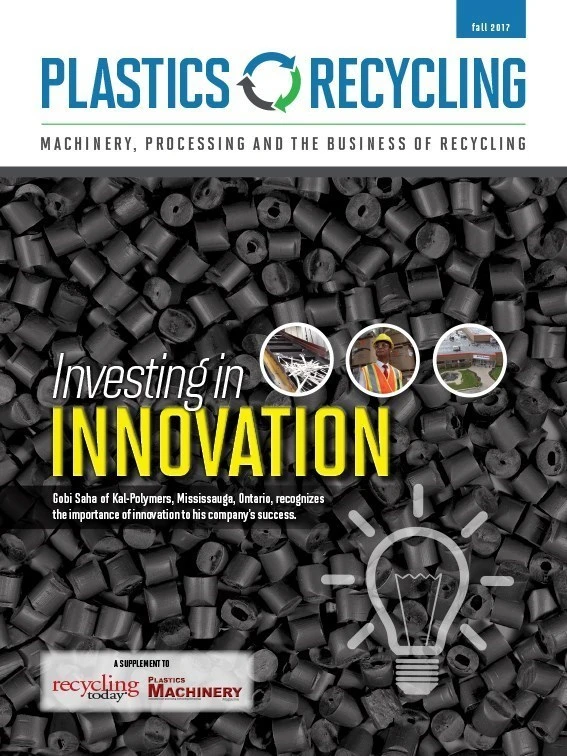
Since China embarked on its National Sword campaign in February of this year, the plastics recycling sector in North America has faced a great degree of uncertainty. This action was coupled with a crackdown on licenses to import plastic scrap into the country, which caused plastic scrap imports to back up at ports as facilities were inspected. Some violations cited by China’s Ministry of Environmental Protection (MEP) during these inspections involved machinery that was allegedly installed without proper licensing, while others are as minor as missing signage. As of late July, recyclers in the country were saying they were experiencing or knew of other companies that were experiencing postinspection penalties that included scrap import restrictions or suspensions lasting either six months or a full year.
As a result of these actions, some North American brokers and recyclers of certain types of postconsumer plastic scrap are finding it difficult to find homes for their materials inside China. The uncertainty associated with shipping material there caused others to reconsider doing so, though the scrap in question didn’t fall into the categories that were receiving extra scrutiny.
More recently, China has announced that some 24 types of materials, including eight types of postconsumer plastic scrap, will be prohibited from entering the country starting in 2018.
These moves by China are further straining an already struggling plastics recycling sector in North America. The market conditions of the last few years have seen a number of plastics recycling companies go out of business, including Maine Plastics and InterGroup International. Others, such as United Plastic Recycling Inc., filed for bankruptcy before being acquired. The most recent casualty as of press time is QRS of Maryland, which announced that it idled its plant in Dundalk, Maryland. The company says it is evaluating several proposals that may lead to a joint venture or acquisition of the plant, which separates and recycles postconsumer plastics and features more than $10 million in processing equipment.
While it’s easy to get caught up in all the bad news, it’s important to keep sight of the positive news. For instance, innovation is still a hallmark of the plastics recycling industry, as illustrated by the subject of the cover story for this edition. Gobi Saha of Kal-Polymers knows how essential innovation is to his company’s longevity.
Procter & Gamble also recently shared news about its development of a new technology to recycle polypropylene (PP) that uses a solvent-based extraction and purification process to remove color and odor from infeed material. PureCycle Technologies has begun construction on a facility in Ohio that will help to commercialize this technology, which could radically increase PP recycling.
Kim Holmes in her article “Trending upward in a down market,” beginning on Page 38, shares details about companies that have been finding success despite the difficult market conditions.
We hope you find inspiration in these success stories and remember that innovative ideas can help to propel the plastics recycling industry forward.

Explore the October 2017 Plastics Recycling Issue
Check out more from this issue and find your next story to read.
Latest from Recycling Today
- AF&PA report shows decrease in packaging paper shipments
- GreenMantra names new CEO
- Agilyx says Styrenyx technology reduces carbon footprint in styrene production
- SABIC’s Trucircle PE used for greenhouse roofing
- Hydro to add wire rod casthouse in Norway
- Hindalco to invest in copper, aluminum business in India
- Recycled steel price crosses $500 per ton threshold
- Smithers report looks at PCR plastic’s near-term prospects






